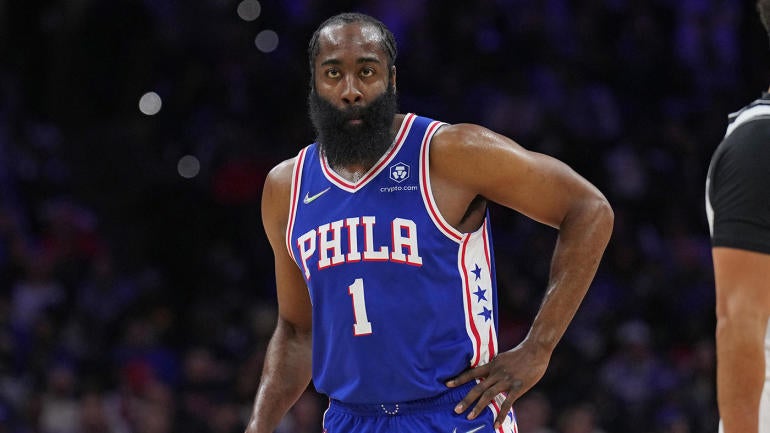
James Harden is officially a member of the Los Angeles Clippers as of Wednesday. The deal that sent him away from the Philadelphia 76ers was completed on Tuesday and now, the 2018 MVP will get to play out the season with his preferred team. Of course, what happens afterward is still very much a mystery. Harden is set to be a free agent this offseason, and for a variety of reasons, that has informed quite a bit of his decision-making since all of this began.
Let's wind the clocks back to June. The 76ers did not negotiate a long-term deal with Harden before the beginning of free agency, with reports suggesting that they feared further league investigation after getting docked a draft pick for tampering on P.J. Tucker. Instead, they debated internally what to offer Harden. Yaron Weitzman of Fox Sports reported that a four-year max deal was out of the question, but that Daryl Morey ultimately wanted Harden back. In the end, it's not clear whether any offer was ever made before Harden opted into his deal and started angling for his trade.
Where would Philadelphia have ultimately fallen? According to ESPN's Adrian Wojnarowski, "he potentially could have had a two- or three-year max deal with the Sixers probably around $40 million a year." That's quite a bit of money even if options or non-guarantees had been involved. It is also definitely less than the full max deal that the Brooklyn Nets were willing to give him in the 2021 offseason, and likely less than Harden expected after he took less than the max as a free agent to return to Philadelphia in 2022. There is no evidence that the 76ers promised Harden a long-term payday if he allowed them the financial flexibility to add Tucker and Danuel House, but it has frequently been speculated.
Harden might have had the leverage to force the 76ers to do so had the Houston Rockets pursued him as planned. Instead, they signed Fred VanVleet. That left Harden with no obvious home in free agency. The remaining cap space teams were all non-contenders seemingly disinterested in an aging ball-handler. That put the ball in Philadelphia's court. Had Harden opted out of his deal, Philadelphia's Bird Rights would have been his only mechanism for a market-value contract. They could have used that to lowball him, especially since there likely wouldn't have been a viable cap space team available to him in 2024.
This is why securing a trade to the Clippers was so important, financially, from Harden's perspective. With no cap space teams making sense for him, he needed his Bird Rights to land with a team that would be motivated to re-sign him. The Clippers check every box. They will be so far above the salary cap and aprons if they re-sign Kawhi Leonard and Paul George that they would have no mechanism to replace Harden if he left, and after investing all of those picks into landing him, they are seemingly committed to this core for the next several years. Steve Ballmer is rich enough not to pinch pennies on a Harden extension, especially with a new stadium opening next season.

CBS Sports HQ Newsletter
Your Ultimate Guide to Every Day in Sports
We bring sports news that matters to your inbox, to help you stay informed and get a winning edge.
Thanks for signing up!
Keep an eye on your inbox.
Sorry!
There was an error processing your subscription.
If Harden has a strong season for the Clippers, the stage is now set for him to get paid handsomely in the offseason. Of course, it's worth wondering just how big that next contract would need to be in order to satisfy him. Would Harden take that two- or three-year max from the Clippers that Philadelphia potentially would have offered? Would he demand more? If the season goes poorly and he has nowhere left to turn, would he consider taking less?
Harden and the Clippers have months to figure this out. It will largely depend on how this season goes. But Harden will turn 35 next August. The odds of him actually living up to a multi-year max deal are slim, and if he can't make it work on his fourth team in four years, interest in him will surely be limited. His days as a no-brainer max player are over. Now it's just a matter of figuring how close he can still come to the deals that were available to him in years past.


















